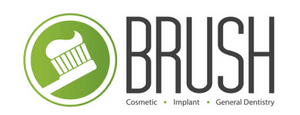A Deep Dive into Tooth Sensitivity
Tooth sensitivity is a dental discomfort that many face, which often sends a sharp pain when we least expect it. Even though major triggers for sensitive teeth and conventional treatments are heavily discussed, there’s more to the story that goes unnoticed. Join us as we delve into tooth sensitivity and explore innovative treatments that can restore your smile and its functionality.
Understanding Tooth Sensitivity:
Tooth sensitivity also known as dentin hypersensitivity, occurs when the protective enamel on teeth wears down. Through the erosion underlying dentin is exposed and so are the microscopic tubules that lead to the tooth’s nerve center. The quick jolt of pain or discomfort people experience occurs when the tubules come into contact with hot, cold, sweet, or acidic substances.
Causes Beyond the Surface:
- Overzealous Brushing:
- Brushing is a core component of your oral hygiene routine, but if you’re brushing too firmly you could be doing more harm than good. Using excessive force while brushing can lead to enamel erosion and tooth sensitivity. It’s possible to brush thoroughly without overdoing it.
- Acidic Diets and Beverages:
- Indulging in your favorites whether it’s soda, coffee, or citrus fruits can lead to enamel erosion right under your nose. Acidic substances weaken enamel and expose the underlying dentin causing tooth sensitivity.
- Bruxism:
- The habitual grinding or teeth clenching, often done unconsciously during sleep, can gradually wear down enamel. As the enamel degrades over time it leads to increased tooth sensitivity. Alleviating the effects of bruxism can be done simply with nightguards typically recommended by your dentist.
- Receding Gums:
- When the gums recede the tooth’s root is exposed and lacks the protective enamel that the bulk of the tooth does. This exposes the dentin, making the teeth susceptible to sensitivity. If the gum recession is severe, gum grafting may be suggested to explore the possibility of restoring the smile and reducing sensitivity.
- Tooth Decay and Cavities:
- Cavities and tooth decay compromise the integrity of the tooth and create the opportunity for teeth to become sensitive. Being proactive and attending regular dental exams can prevent cavities and reduce tooth decay. Timely dental interventions, such as fillings or root canals, can address this underlying cause.
Innovative Treatments for Tooth Sensitivity:
- Desensitizing Toothpaste with Potassium Nitrate:
- While desensitizing toothpaste is a common recommendation, opting for formulations with potassium nitrate can be particularly effective. Potassium nitrate blocks the transmission of pain signals from the tooth’s nerve, providing relief.
- Fluoride Varnishes and Gels:
- Professional fluoride applications like gels or varnishes strengthen the enamel and reduce sensitivity. Your dentist may suggest in-office fluoride treatments depending on the level of sensitivity.
- Laser Therapy:
- Innovative technologies in dentistry can aid in reducing tooth sensitivity through laser therapy. Low-level laser therapy may help seal dentinal tubules, providing a protective barrier against external stimuli and thus reducing sensitivity.
- Dentin Sealers:
- Dentin sealers or adhesives can be applied to the areas of exposed dentin on the surfaces of teeth. Dentin sealers work as a barrier and prevent painful external stimuli from reaching the nerve endings.
- Amorphous Calcium Phosphate (ACP) Products:
- ACP products enhance remineralization and encourage the formation of a protective layer over exposed dentin. These products, often found in certain toothpaste formulations, aid in reducing sensitivity gradually over time.
Restore Your Smile & Quality of Life
Understanding the causes and treatments for tooth sensitivity is key to managing tooth sensitivity, preventing further tooth sensitivity, and receiving comprehensive dental care. While traditional approaches to sensitive teeth remain integral, embracing advancements in dental science ensures a tailored and effective strategy for managing sensitive teeth in Seattle, Washington. If tooth sensitivity persists or intensifies, schedule an appointment with a dental professional at Brush Dental to identify the root cause and receive a personalized treatment plan. If you’re in the Seattle Washington, U District, or Wallingford area and are suffering from tooth sensitivity it’s time to restore your smile and get back to your everyday life with quality dentistry at Brush Dental.







